With Tesla following Waymo and Uber set to get its own robotaxis into operation soon, the other ride-sharing giant, Lyft, is determined not to be left behind. The San Francisco-based ride-sharing service is partnering up with Holon and Bentler to start rolling out a fleet of autonomous shuttles next year. Headlight.News has more.
While it’s likely to take some time before the typical motorist will be able to buy a truly autonomous vehicle, we’re at the tipping point when it comes to robotaxis…or so it might seem based on a series of announcements made in recent months.
Waymo, the pioneer in the field, is planning a rapid expansion of its service in cities across the country and Tesla is just getting its feet wet with the June launch of its robotaxi service in Austin. Uber has plans in place to partner with Lucid on self-driving taxis. And its long-term rival, Lyft, is the latest to enter the field.
More precisely, Lyft has announced plans to partner with Bentler and Holon to roll out a new service based on Holon’s jitney-style driverless shuttles. The partners say they could begin operations as early as late 2026.
What’s new
The robotaxi field is rapidly accelerating. Waymo already operates a fleet of roughly 1,000 self-driving cabs in San Francisco, Phoenix and Austin, and will add thousands more, it says, as it enters new markets.
Tesla isn’t just testing the robotaxi concept. CEO Elon Musk bills them as essential to the company’s future. Same story at Uber which wants to cut out its biggest cost: the drivers in its own fleet of ridesharing vehicles.
Not to be left behind, Lyft said it will begin deploying autonomous shuttles between airports and cities across the country. And while its announcement was short on details, the San Francisco-based service said it hopes to expand to “thousands of vehicles as we bring this service to more geographies around the globe.”
A three-way partnership
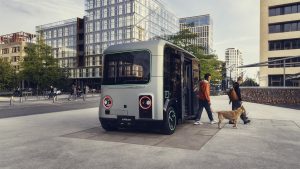
Lyft suggested it will use the Holon shuttle on fixed routes, such as from an airport to an urban center.
Uber and Lyft took similar paths to autonomy, each launching their own R&D operations and beginning to field test the technology nearly a decade ago. But the two companies soon ran into trouble, Uber killing its program after a much-publicized fatal crash in the Phoenix suburbs.
For its part, Lyft decided to sell off its autonomous vehicle operations to Toyota in April 2021. The Japanese automaker currently is developing a service of its own through its Woven by Toyota subsidiary.
Getting out of the robotaxi world posed a serious problem for Lyft, however. If its competitors succeeded in making autonomous vehicles the norm, Lyft would be saddled with substantially higher costs. Rather than start up from scratch again, however, Lyft is teaming up with Holon and Bentler.
More Robotaxi News
- Tesla Robbs Out First Robotaxis
- Rimac Launches Verne Robotaxi Service
- Dual of the Robo-Titans, Tesla v Waymo
Shuttle buses
In the alliance, German-based Holon will provide the vehicles. Rather than car or SUV-like, they’re jitney style minibuses capable of handling multiple passengers simultaneously. That approach suggests the service could focus on fixed routes, such as from an airport to a center city transportation hub, rather than operating like a taxi, picking up and dropping passengers off at their choice of locations.
Ironically, the Holon jitneys look a fair bit like the toaster-shaped shuttles Toyota has been showing off in recent years.
As for Bentler, its also a German-based firm that is on tap to provide both financing and servicing for Lyft’s planned fleet of autonomous vehicles.
Lyft has also partnered with Georgia-based May Mobility and could launch later this year another robotaxi service that would be a more direct competitor to Waymo, Tesla and Uber.

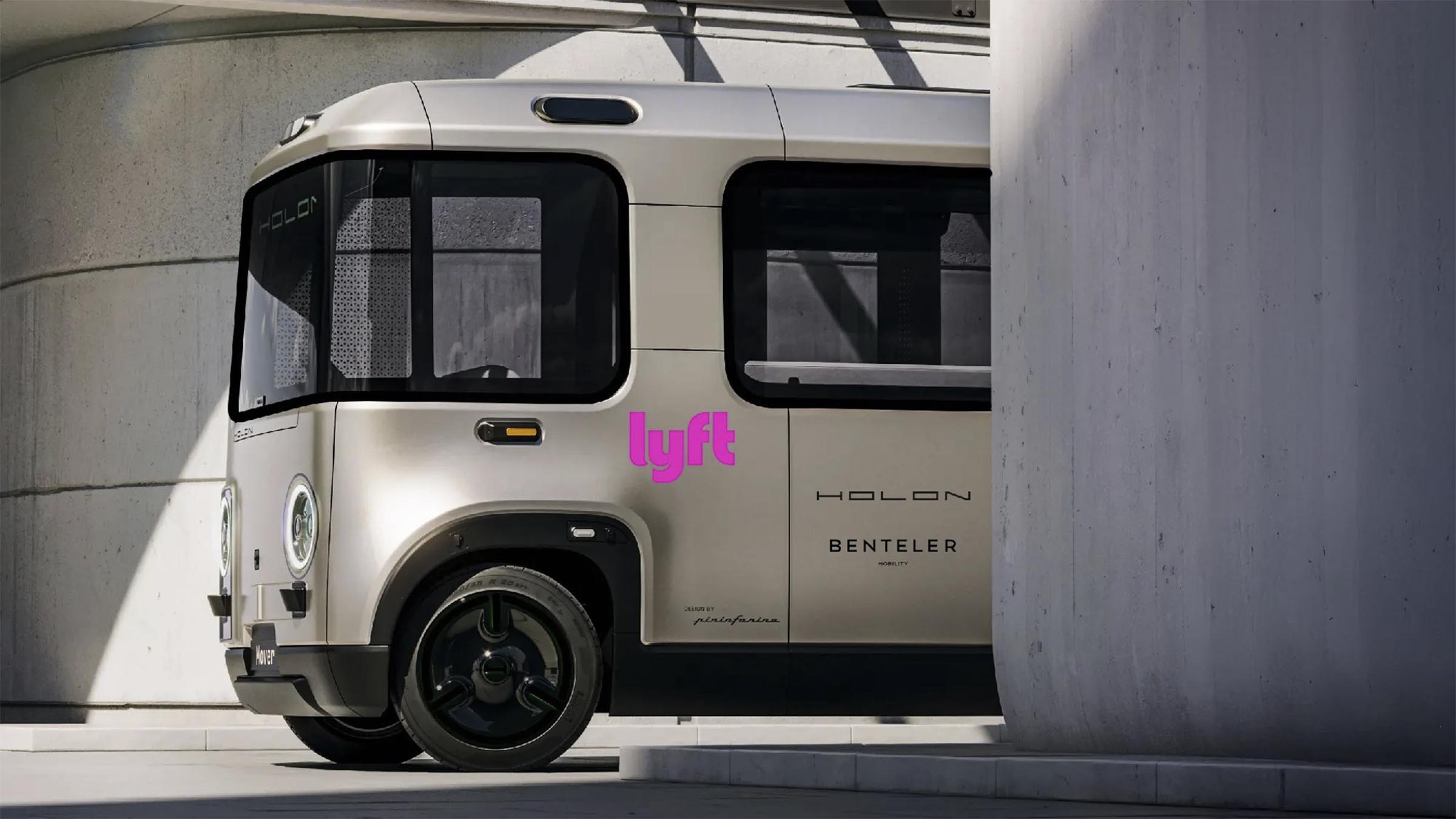
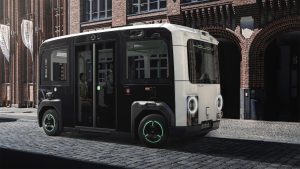
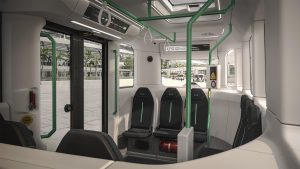

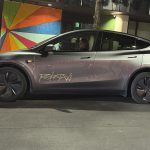



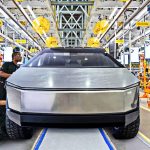
0 Comments